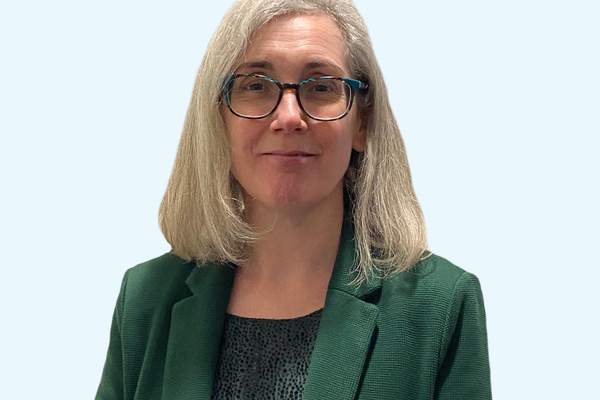How landlords are using data to tackle fuel poverty
An Inside Housing roundtable, in association with Switchee, discusses how landlords can analyse data to ensure they are helping residents who are struggling with energy costs. Photography by Belinda Lawley
In association with:

The past two years have seen energy prices rise to unprecedented levels. Coupled with inflation and a wider cost of living crisis, the situation is having a major impact on the lives of many people living in social housing, as well as their landlords.
Although official statistics are patchy, many charities and other organisations expect there to be a rise in the number of households slipping into fuel poverty in the coming years. According to a House of Commons report in March 2023, the latest estimate for fuel poverty rates in England was around 13% of households, while the figure was 14% in Wales, 24% in Northern Ireland and 25% in Scotland. Methodologies on how to calculate fuel poverty vary, but National Energy Action estimates that the total number of fuel-poor homes grew from four million in 2020 to around 7.5 million in April 2023.
So what role can social housing providers play? Does the sector have to become more proactive in finding and helping residents? And how can data collected from in-home smart monitoring tech address the problem by providing a realistic figure of those in fuel poverty?
To answer some of these questions, Inside Housing held a roundtable discussion chaired by senior reporter James Riding, which included large and small landlords alongside energy experts, in association with Switchee, a technology company providing real-time, data-driven insights for social housing providers.
More acute
Attendees broadly agreed that the problem is getting more acute and that identifying the tenants who need help the most is one of the most important first steps.
“What we’re really seeing is a huge increase in fuel poverty, not only [from] those that are on benefits, but self-payers and shared owners, too,” says Marion Duffy, chief operating officer at 47,000-home Platform Housing Group. “And we’ve seen an increase in arrears in those areas that we’ve never seen before.”
Platform has launched what it calls a “silent customers initiative”, which Ms Duffy says uses AI to identify customers who have not contacted the landlord for 12 months. The housing provider says it has helped to reach out to those vulnerable residents who are harder to engage with and signpost them to support and charitable aid.
Anu Singh, who sits on the non-governmental Committee on Fuel Poverty scrutiny group, admits that “statistics can be slippery” when it comes to fuel poverty, but agrees more people are finding bills hard to pay. She cites that the government target on fuel poverty to get all fuel-poor homes to Energy Performance Certificate Band E or above by 2020 has been missed and she worries the target to get all properties to Band D by 2025 – which the committee estimates is 704,000 homes – will also not be reached, as a milestone to the final goal in 2030 of all homes being Band C or above.
“There are different ways to present progress, but we feel that government hasn’t achieved what it needed to do by 2020, and we feel that unless something major changes, it will also miss the 2025 deadline.”
That warning comes as 34 housing associations, which together manage more than 1.5 million homes, have called on the government to provide more support for low-income households in the coming winter.
“Government hasn’t achieved what it needed to do by 2020, and unless something major changes, it will also miss the 2025 deadline”
One of those landlords is Thirteen Group in the North East of England. Paul Jenkins, its executive director of assets and sustainability, says tackling fuel poverty is one of a number of overlapping problems landlords such as Thirteen are facing: “We’ve got all the other things we are trying to deliver. [We have to think] if it’s the right thing to do from an investment perspective, given the impact on sustainability. Is that the right stock to invest in? Because we’re here to provide and meet housing need. That means some customers may be living in homes that aren’t suitable, and we need to think about that longer term [and perhaps move residents to different accommodation].”
The issue of competing demands – and how to pay for them all – is also raised by another North East housing association, Karbon Homes. “I’m interested in technology, but it has to be affordable technology that we can do at scale,” says Ian Johnson, executive director of customer service at the 32,000-home landlord. “It needs to be affordable within the context of all the other pressures on the sector.”
One way to better inform the investment decisions that Mr Jenkins alludes to is to have better data about homes and how residents live in them. Jo Savage, chief executive at Greatwell Homes, accepts that the way many associations provide support for their residents is far from strategic.
“What struck me is that data is targeted, but some of it’s been quite ad hoc,” she says. “Are we getting the most value out of that? Are we targeting things in the way that we need to? What I’m particularly interested in is how technology can support us to understand more about the most effective way to identify people.”
Data-gathering
Hugh Owen, director of strategy and public affairs at Riverside – another of the signatories on the letter calling for government action – also admits that the sector’s data-gathering about energy use has been insufficient.
“We don’t have reliable data on how much customers are spending on a day-to-day basis on their bills,” he says. “And even the data that we do have, we’re probably not using that brilliantly, and that’s step one.”
Riverside is one of several landlords at the table now using Switchee devices to better understand their customers’ energy use habits and, therefore, how to improve energy efficiency.
Tom Robins, chief executive of Switchee, says that the housing associations his company works with often hold data in too many different places, making it hard to cross-reference and use it effectively.
“It’s not about a shortage of money [at housing associations], he explains, “but the complexity of the poverty metrics that we see is very backward looking.”
He adds: “It might require five or six different indices from four different departments to come together. And that makes no difference to our resident, who’s sitting there with his thermostat turned down to 16 degrees [because he can’t afford to heat his home].”
“The way we’re choosing to heat our homes has an impact on how the property is maintained, and the propensity for condensation, damp and mould”
Marc Edwards, director of asset and sustainability at 29,000-home association Gentoo, says that the landlord has “learned so many lessons” from a small-scale pilot programme where it has used Switchee data.
“We know how people do or don’t use their heating through the remote monitoring of the devices, and we’ve invested time working with our customers to make sure they optimise the system,” he explains, adding that Gentoo is focused on “prioritising trying to make the most impact through low-level measures”.
Matt Buckham, community investment director at Sovereign Network Group (SNG), emphasises the importance of taking “a holistic view of a household”, given that energy use is likely to be just one part of a broader picture.
“It’s not only fuel poverty,” he elaborates. “It’s likely to be food poverty, and digital poverty as well. Our data team has looked at how we can look at data holistically.”
SNG, he adds, has trained 750 people on an AI programme, which will help them develop localised solutions and facilitate what he describes as “a place-based approach”.
Switchee is developing a weekly fuel poverty index that will show “a snapshot” of data about energy use across tens of thousands of homes where devices are installed. Mr Robins says the data is already revealing differences in behaviour when it comes to heating.
“The way we heat our homes is an important choice that we make. And the way we’re choosing to heat our homes differently has a material impact on our health: it has an impact on how the property is maintained, and the propensity for condensation, damp and mould.”
“We need to find other ways to talk about it [fuel poverty], which is about affordable warmth, because it’s stigmatising and labels people”
Charles Wood, deputy director of policy at Energy UK, echoes Mr Robins’ assertion that there have been changes in habits in the way people heat their homes, pointing to a 13% reduction in gas use last year in the face of rising prices.
“The mild weather of last winter had an impact. Going into this winter, if it’s cold, you can expect to see some real damage for those who are just about able to afford to heat their homes.”
Mr Wood adds that social rented homes could have a major impact in an overall reduction in energy use, but only if support to tenants is available from landlords or government: “There’s a lot of potential for social housing when it comes to reduction in energy costs, from energy efficiency, smart meters and solar panels, but it’s also an area where you’re least likely to see people be able to take on those technologies themselves, or put their hand up to ask for help. However, if the system is automated, landlords can identify residents who might need help and reach out to offer support.”
“There’s a real problem with the language we use around decarbonisation and net zero,” adds Susan French, chief executive of Barnsbury Housing Association, which manages 300 homes in north London. “The words are meaningless to a lot of people, and it’s also [the case with] fuel poverty. We need to find other ways to talk about it, which is about affordable warmth, because it’s stigmatising and labels people.”
Monitoring residents
Tom Boome, head of technical, innovation and climate at Welsh landlord ClwydAlyn, says that tenants are reluctant to be “monitored”, even if it is for their benefit. “There’s a lot of hesitancy; people don’t want to be monitored or have their data collected or mined. We go on the comms angle of it being about helping you use your home more efficiently [rather than poverty],” he says.
Some attendees reported a reluctance among residents to accept financial help, but Tracey Longworth, housing support manager at Almond Housing Association in Livingston, near Edinburgh, says she has seen “the opposite” in terms of grant funding. “The short-term nature of that funding means that we are starting to provide assistance, then the funding is switched on and off quickly. And that’s a real problem.”
Peter Cogan, group director of customer services at Watford Community Housing Trust, spent the majority of his career in banking and suggests that the sector could provide lessons in customer engagement. “What banks are good at is knowing their customer. They’re good at mining their data, and targeting those customers [where they see] an opportunity,” he says.
Whatever solutions are found, they must be long term, attendees agreed.
As Mr Cogan concludes: “Energy companies buy energy over a long period of time. This isn’t a 24-month challenge, this is a multi-year challenge.”
Participants
James Riding (chair)
Senior reporter, Inside Housing
Matt Buckham
Community investment director, Sovereign Network Group
Tom Boome
Head of technical, innovation and climate, ClwydAlyn
Peter Cogan
Group director of customer services, Watford Community Housing
Marion Duffy
Chief operating officer, Platform Housing Group
Marc Edwards
Director of asset and sustainability, Gentoo Group
Susan French
Chief executive, Barnsbury Housing Association
Paul Jenkins
Executive director of assets and sustainability, Thirteen Group
Ian Johnson
Executive director of customer service, Karbon Homes
Tracey Longworth
Housing support manager, Almond Housing Association
Hugh Owen
Director of strategy and public affairs, Riverside
Tom Robins
Chief executive, Switchee
Jo Savage
Chief executive, Greatwell Homes
Anu Singh
Member, Committee on Fuel Poverty
Charles Wood
Deputy director of policy, Energy UK














